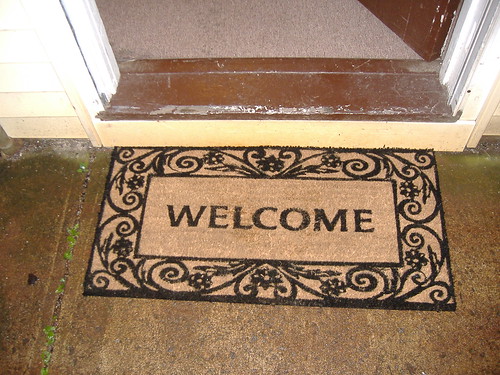Whilst pondering the email from the Telegraph employee that was published this week by Roy Greenslade (give me another day and I might have a respond to it!), a few questions came up.
I haven’t built on them, but I thought I’d list them here to get them temporarily out of the way whilst the other blog post is percolating in my head.
At any newspaper I’ve ever had experience at, one of the daily chores is to read through all the other newspapers published that day to check for good stories to follow up on. If you are a regional paper this means looking out for stories in your region and if you are on a national it’s looking for good follow-ups broken by the regionals.
If someone finds a good story they’ll put in a few calls and see if they can confirm or develop it for their publication the next day.
Isn’t this the aggregation we talk about – putting the best of what’s out there onto our own site? How does this differ from scouring blogs for stories? Is it because they are not consider “official” publications and, therefore, more likely to contain false leads or misinformation? If so how are the skewed stories that turn up in the national red-tops better than the skewed stories on a blog?
Also if we fear the media is going to turn into simple speculation and opinion, how do we justify the speculation and opinion that already exists in newspapers? Is it at a satisfactory level now, whereas the inclusion of a few extra blogs on a website might tumble it over the edge? How do we justify the stories that come out of the football transfer season, or the swathes of business and stock market speculation that seem to be produced at the weekend when the markets are closed?
Also, if newspapers are using blogs to try and host some of the conversation about their stories on their site, why is that affecting the original content? Is it the time factor it takes to write a blog? Does it really detract that much time from the act of story-writing?
Sorry, lots of questions, not many answers. That seems to be how things are at the moment.

